Projects
Amazon DeepRacer event
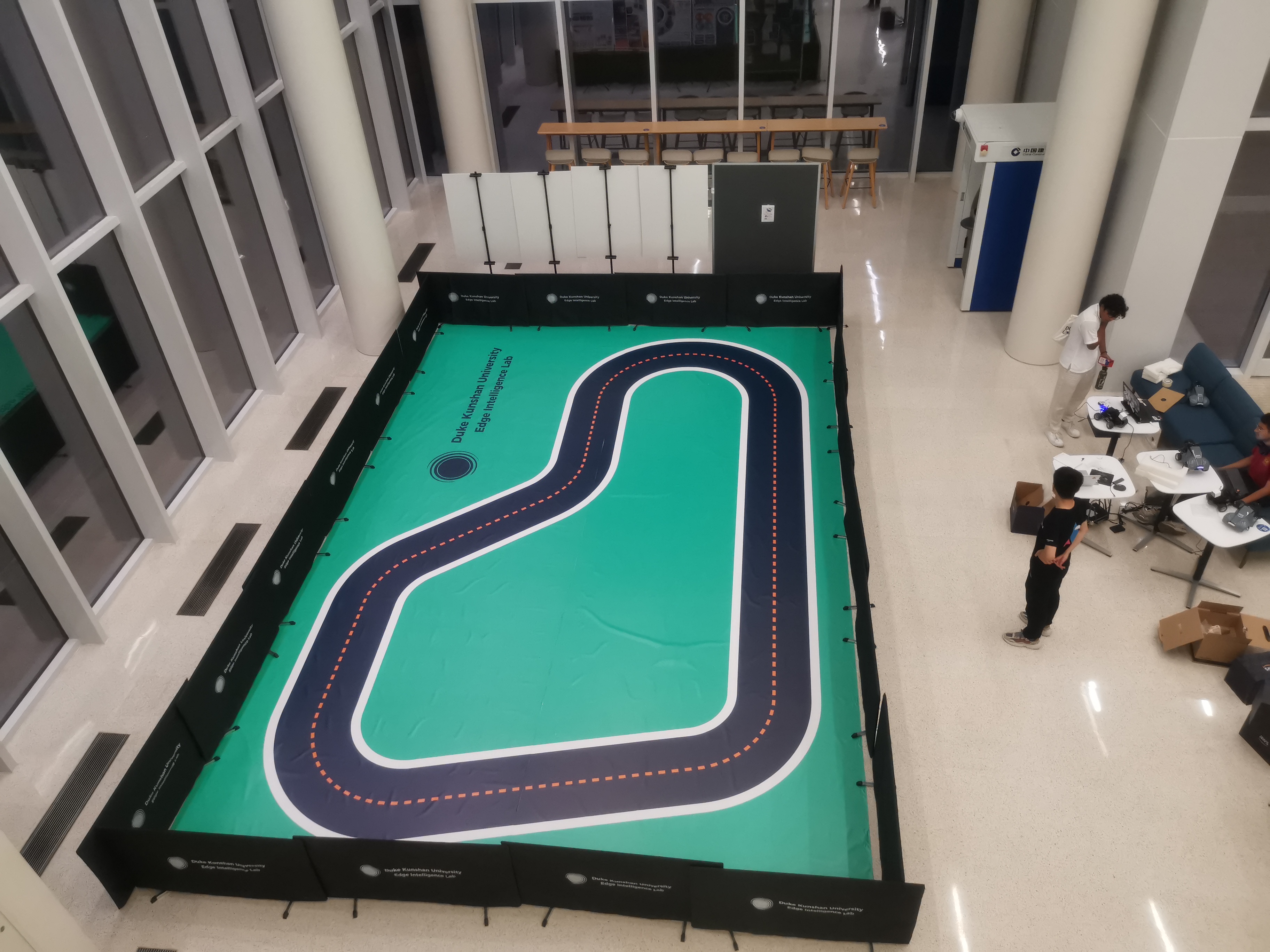
Hosted and Co-organized by DKU Edge Intelligence Lab, the first Amazon DeepRacer event will come to DKU on
August 25th. Amazon DeepRacer is the fastest way to get rolling with reinforcement learning (RL) with a
fully autonomous 1/18th scale race car driven by reinforcement learning, 3D racing simulator, and a global
racing league. Developers can have the unique opportunity to get hands-on to train, evaluate, and tune RL
models in the online simulator, deploy their models onto Amazon DeepRacer for a real-world autonomous
experience.
Optimization and System Development for Federated Learning in Mobile and IoT Networks
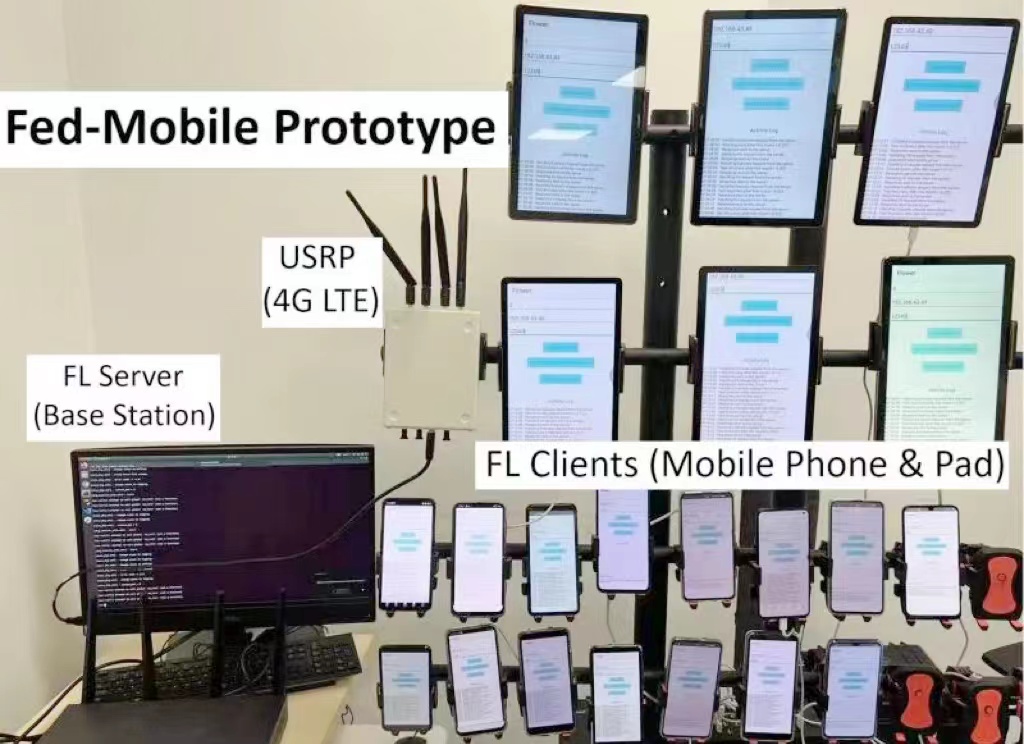
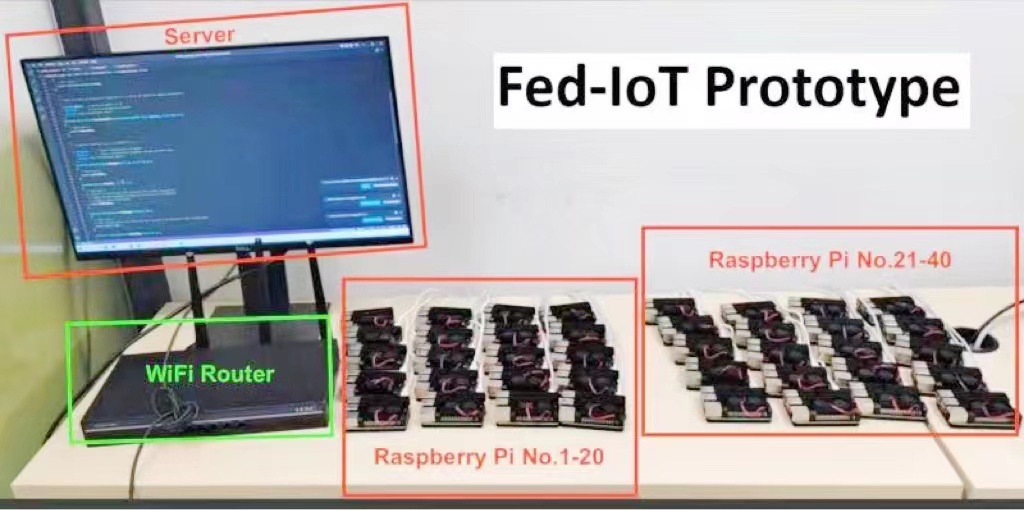
- This is a collaborative research project with Prof. Jianwei Huang, Prof. Leandros Tassiulas, and Dr. Shiqiang Wang (IBM T. J. Watson Research Center).
- I lead a small team of graduate (Xiang Li) and undergraduate (Wenli Xiao, Jiaqi Shao, Yingyi Huang, and Yutong Feng) students from CUHKSZ in developing edge-based cross-device federated learning prototypes.
- Check out our Fed-Mobile and Fed-IoT prototypes on the left side. Our prototype supports Mobile and IoT devices operating at WiFi and USRP-based 4G/5G wireless networks.
I. Adaptive Client Sampling for Federated Learning
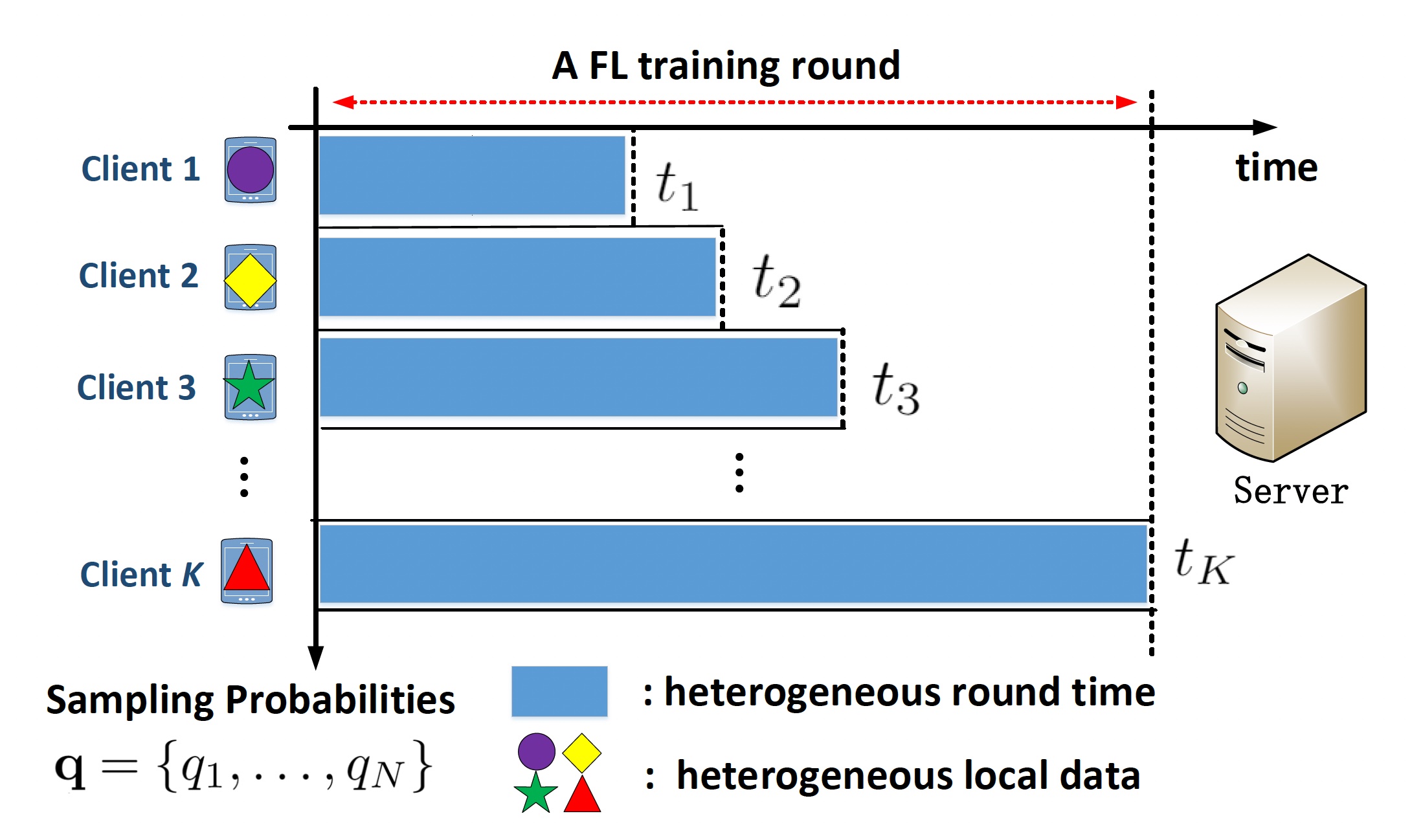
- This sub-project aims to design optimal client sampling probability to tackle system heterogeneity (e.g., computation and communication capabilities) and statistical heterogeneity (non-i.i.d. and unbalanced data) for fast convergence with respect to wall-clock time.
- Our paper "Tackling System and Statistical Heterogeneity for Federated Learning with Adaptive Client Sampling" published in IEEE INFOCOM, 2022
II. Cost-Effective Federated Learning Design
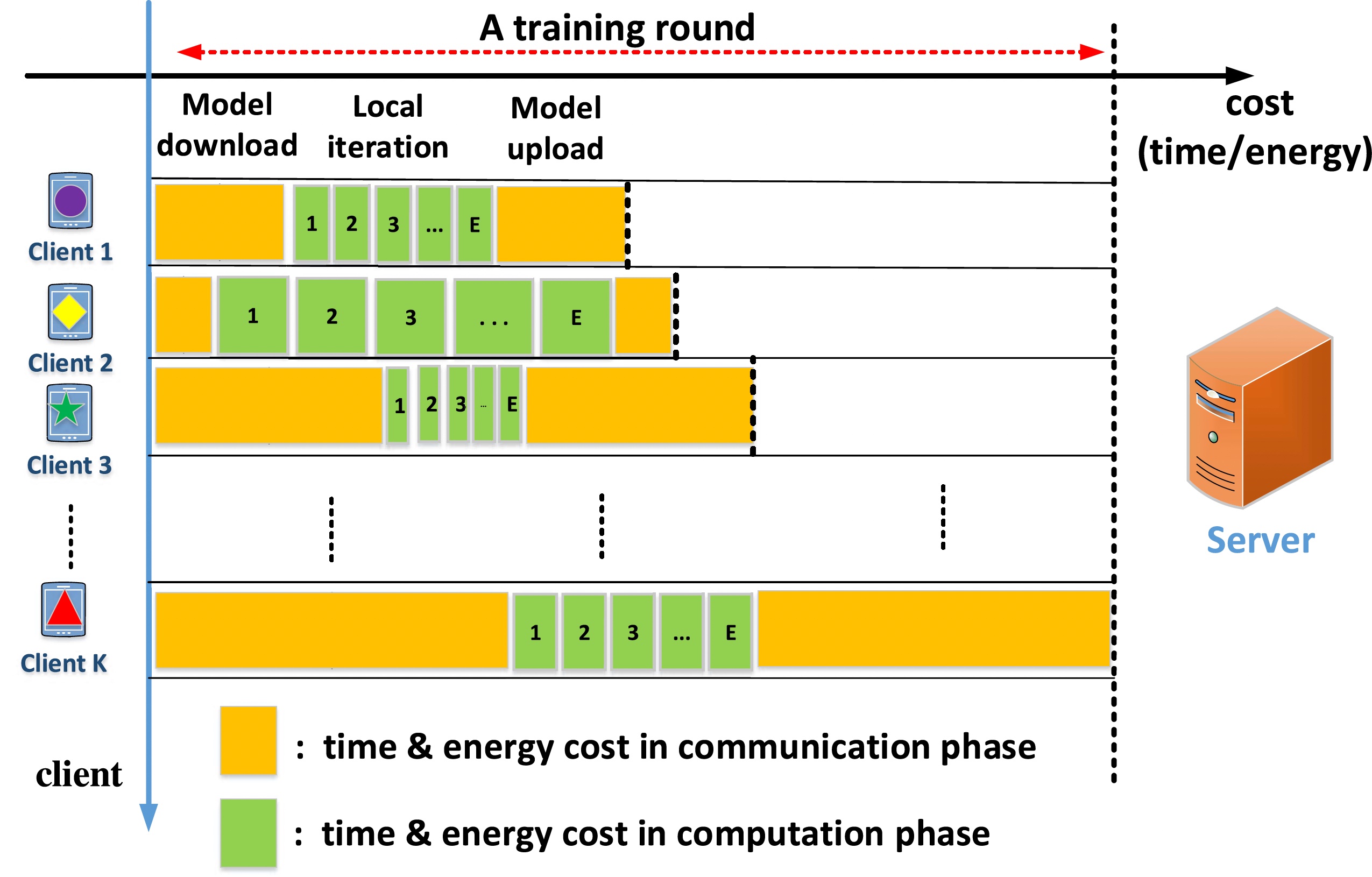
- This sub-project aims to minimize the total FL resource cost via optimizing the key control parameters of number of local iteration steps and number of per-round participants.
- Our paper "Cost-Effective Federated Learning Design" published in IEEE INFOCOM, 2021.
- Our paper "Cost-Effective Federated Learning in Mobie Edge Networks" published in IEEE JSAC Special Issue on Distributed Learning over Wireless Edge Networks, 2021.
Game-Theoretic Incentive Mechanism for Unbiased Federated Learning
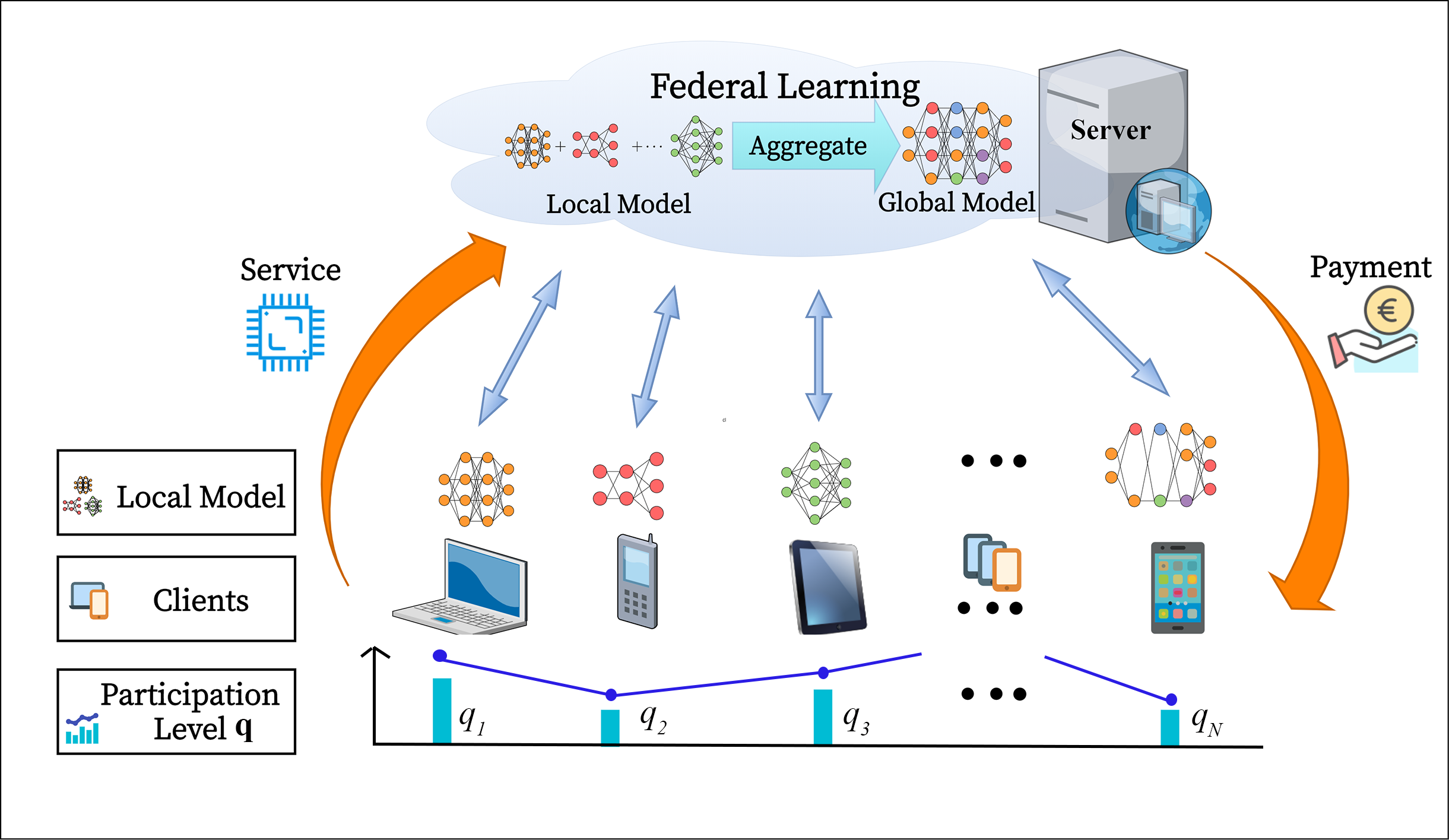
- Motivation: Incentive mechanism is crucial for federated learning (FL) when rational clients do not have the same interests in the global model as the server. However, due to system heterogeneity and limited budget, it is generally impractical for the server to incentivize all clients to participate in all training rounds (known as full participation).
- Approach: This project aims to propose a game-theoretic incentive mechanism for FL with randomized client participation, where the server adopts a customized pricing strategy that motivates different clients to join with different participation levels (probabilities) for obtaining an unbiased and high-performance model.
- Our paper "Incentive Mechanism Design for Unbiased Federated Learning with Randomized Client Participation" got accepted in IEEE ICDCS 2023.
Federated Reinforcement Learning for Robotics
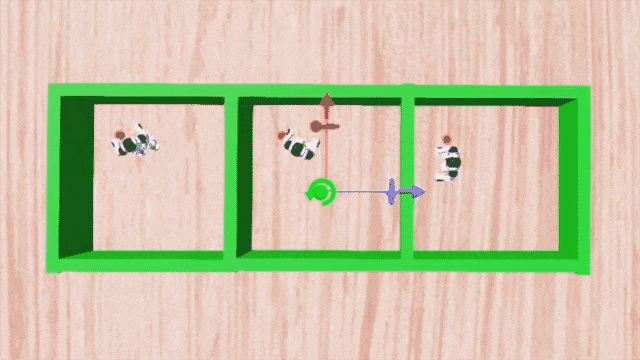
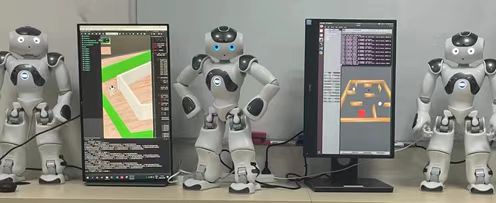
- Our paper "FedRos - Federated Reinforcement Learning for Networked Mobile-Robot Collaboration" has been accepted by ICDCS 2023 Demo and Poster program.
- My research project "Federated Learning for Multi-Robotics Cooperation" got funded with 500,000rmb from AIRS! (July. 2021-June. 2022). I lead this project with two excellent research interns Wenli Xiao and Tingwei Ye from CUHK(SZ). Check out our developed demo and cool NAO robots on the left side.
- I participated in the WeBank-AIRS collaboration project "Federated Reinforcement Learning" led by Prof. Qiang Yang. (Nov. 2020-Oct. 2022)
Resource Optimization for Distributed Coordinated Multi-Point (CoMP) Systems

- This project aims to design optimal resource allocation strategies for improving the capacity of coherent and non-coherent CoMP systems over multiple wireless channels under hybrid power constraints. (Collaborated with Assoc. Prof. Brian Krongold and Dr. Phee Lep Yeoh)
- Representative publications: IEEE ICC 2017, IEEE GLOBECOM 2019, IEEE TCOM 2019, IEEE TGCN 2021
Resource Optimization for Distributed Cooperative Wireless Energy Harvesting Systems
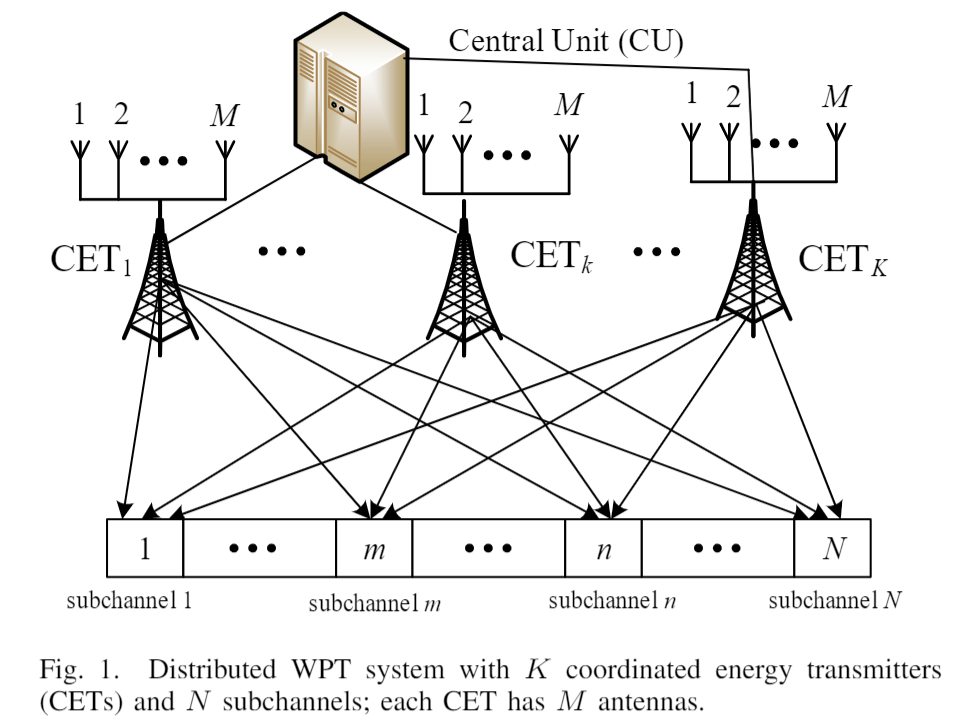
- This project aims to design optimal energy beamforming strategies for improving the efficiency of distributed cooperative wireless power transfer (WPT) systems under hybrid power constraints. (Collaborated with Prof. Robert Schober, Assoc. Prof. Brian Krongold and Dr. Phee Lep Yeoh)
- Representative publications: ICC 2019, IEEE GLOBECOM 2019, IEEE TGCN 2022